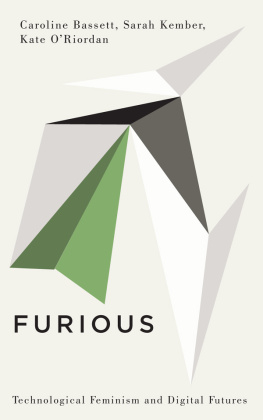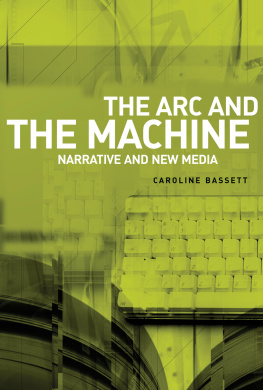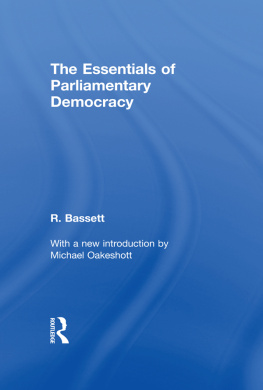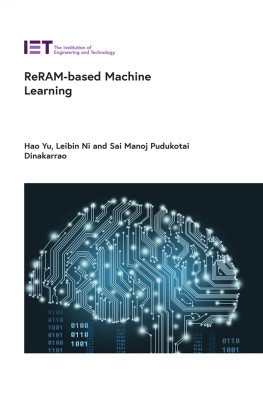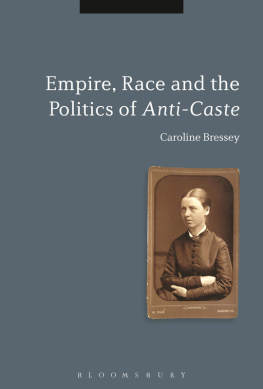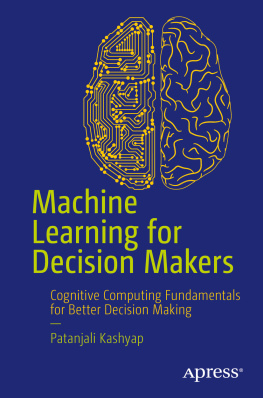Caroline Bassett - Anti-computing : Dissent and the machine
Here you can read online Caroline Bassett - Anti-computing : Dissent and the machine full text of the book (entire story) in english for free. Download pdf and epub, get meaning, cover and reviews about this ebook. publisher: Manchester University Press, genre: Politics. Description of the work, (preface) as well as reviews are available. Best literature library LitArk.com created for fans of good reading and offers a wide selection of genres:
Romance novel
Science fiction
Adventure
Detective
Science
History
Home and family
Prose
Art
Politics
Computer
Non-fiction
Religion
Business
Children
Humor
Choose a favorite category and find really read worthwhile books. Enjoy immersion in the world of imagination, feel the emotions of the characters or learn something new for yourself, make an fascinating discovery.

- Book:Anti-computing : Dissent and the machine
- Author:
- Publisher:Manchester University Press
- Genre:
- Rating:3 / 5
- Favourites:Add to favourites
- Your mark:
- 60
- 1
- 2
- 3
- 4
- 5
Anti-computing : Dissent and the machine: summary, description and annotation
We offer to read an annotation, description, summary or preface (depends on what the author of the book "Anti-computing : Dissent and the machine" wrote himself). If you haven't found the necessary information about the book — write in the comments, we will try to find it.
Anti-computing : Dissent and the machine — read online for free the complete book (whole text) full work
Below is the text of the book, divided by pages. System saving the place of the last page read, allows you to conveniently read the book "Anti-computing : Dissent and the machine" online for free, without having to search again every time where you left off. Put a bookmark, and you can go to the page where you finished reading at any time.
Font size:
Interval:
Bookmark:
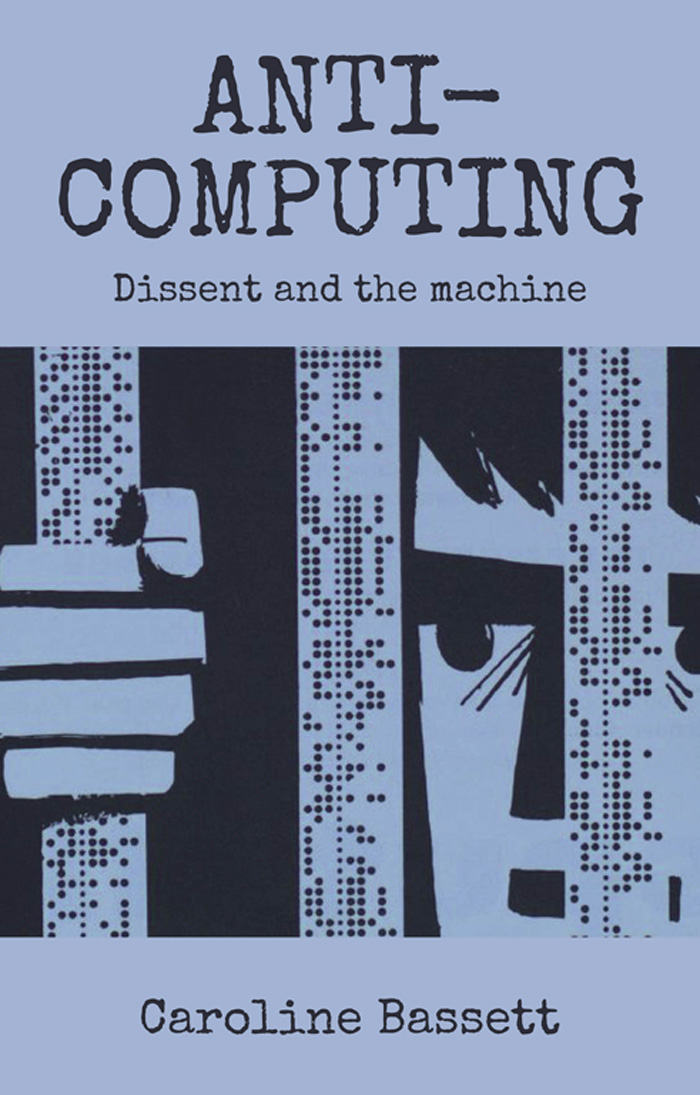
Anti-computing

EBSCO Publishing : eBook Collection (EBSCOhost) - printed on 8/31/2022 5:16 AM via
AN: 3177041 ; Caroline Bassett.; Anti-computing : Dissent and the Machine
Account: ns181034
Anti-computing
Dissent and the machine
Caroline Bassett
Manchester University Press
Copyright Caroline Bassett 2021
The right of Caroline Bassett to be identified as the author of this work has been asserted by them in accordance with the Copyright, Designs and Patents Act 1988.
Published by Manchester University Press
Altrincham Street, Manchester M1 7JA
www.manchesteruniversitypress.co.uk
British Library Cataloguing-in-Publication Data
A catalogue record for this book is available from the British Library
ISBN978 0 7190 8378 5hardback
First published 2021
The publisher has no responsibility for the persistence or accuracy of URLs for any external or third-party internet websites referred to in this book, and does not guarantee that any content on such websites is, or will remain, accurate or appropriate.
Cover design:
Abbey Akanbi, Manchester University Press
Typeset
by New Best-set Typesetters Ltd
This book is for Rosie. I thought you might like it.
I wrote this book in three halves at least and it took me far too long. Life, work, and COVID intervened. I wouldn't have finished it now without threats and encouragements from close friends and colleagues, particularly Kate Lacey, who told me to stop, and Sarah Kember and Kate ORiordan, who told me to keep going it's true we wrote a different book together, but this one is finished because of that one.
This project was completed at Cambridge but it began at Sussex University, and I also worked on it during my time as the Sanomat Fellow at the hugely hospitable Helsinki Collegium for Advanced Studies (HCAS). Thanks are due to many at the international community of scholars at HCAS for feedback and for many inspiring discussions. Huge thanks are also due to my former colleagues in the School of Media, Film and Music (MFM) at Sussex. I am particularly indebted to the MFM Women's Reading Group for their forensic feedback. I'd also like to acknowledge a debt to Ben Roberts, whose thinking has influenced the discussions of 1960s cybernation debates and of contemporary automation anxiety in this book very directly.
Above all I want to thank past and present members of the Sussex Humanities Lab; in particular James Baker, David Berry, Kat Braybrooke, Alice Eldridge, Beatrice Fazi, Wes Goatley, Emma Harrison, Tim Hitchcock, Ben Jackson, Sally Jane Norman, Ben Roberts, Rachel Thomson, Amelia Wakeford, Sharon Webb and David Weir; but there were many more people there who were inspiring, cheering, or noisy in a good way. Modular synth and robot opera have nothing to do with the contents of this book, but the sanity of people working in those areas saved mine.
Some other acknowledgements are due; I interviewed Alice Mary Hilton in New York shortly before her death. Her recollections were not always comfortable, but they opened a door into an earlier moment of automation fever and began this project. I'd also like to acknowledge the Special Collections unit at the University of Sussex, where the Matusow Collection is housed, and to salute the infinitely patient Matthew Frost and others at Manchester University Press. Thanks to readers named and unnamed, but definitely including Jussi Parikka. Finally, thanks to Kate ORiordan (again), Cecile Chevalier, Hilary Baker and Jane Bassett for solidarity above and beyond writing.
AI | artificial intelligence |
CP | Communist Party |
CPUSA | US Communist Party |
FBI | Federal Bureau of Investigation |
HUAC | House Un-American Activities Committee |
ISADPM | International Society for the Abolition of Data Processing Machines |
IT | International Times |
OHID | On Human Individual Dignity |
SEFVA | South East Film and Video Archive (part of the Matusow Collection, Special Collections, University of Sussex) |
SF | science fiction |
Anti-computing: a provisional taxonomy
Anti-computing punctuates computational advances; the rush ahead, the demand to be wanted, the claims for progress, and for progress as automatically good. Anti-computing is a pause, a stop, a refusal, an objection, a sense, an emotion, a response, a popular campaign, a letter, an essay, a code-work, a theorist, a sensibility, an ambience, an absolute hostility, a reasoned objection, a glitch, a hesitation, an ambient dislike. It may be articulated by a human, a crowd, a network, or by a program that refuses to run. It may also be an element of an assemblage containing many other elements; some of them in conflict.
Anti-computing takes many forms. It is unique to its moments of emergence, but is also characterized by recurrence. Many (though not all) of the components of anti-computing today are familiar even if they arise in response to a specific formation as if new, even if the claim is that the issues they address are graver than ever before, entailing qualitatively higher even existential stakes. Anti-computing may emerge as something felt and believed, something cultivated. It may be presented as a rationally adopted position or critique, a feeling (perhaps a yuck factor), or it may be an operation. It is articulated as an individual view, a collective one, as a one-off, and as a circulating and time-travelling discourse (operating synchronously and diachronically albeit in the latter case in disrupted ways). As a human response to the global embedding of the computational it materializes in heterogeneous ways, but since humans, after all, are not separate from the machines with which they co-evolve, this materialization entails technologies as well as humans. It is indeed partly technological.
Anti-computing is all of these things at once because it is part of, and responds to, a formation that is itself pervasive, intrusive, ambient, emergent, installing, materially heterogeneous. I am talking, of course, of the computational, and of computational culture; about a history, about informational capitalism now, and about the computationally saturated and only partly foreseeable future. Computers have spread. They have spread further and faster than earlier human generations imagined possible or that earlier generations of computer appeared to make feasible. There are over two billion computers in the world, and many billions more embedded control circuits. There will be 20 billion sensors in the world by the end of the 2020s, the decade we have already entered as I complete this book. The numbers become meaningless though their sheer weight remains significant. The extent of the computational has broadened and deepened; networking the world, entering the body, reaching into Space.
Font size:
Interval:
Bookmark:
Similar books «Anti-computing : Dissent and the machine»
Look at similar books to Anti-computing : Dissent and the machine. We have selected literature similar in name and meaning in the hope of providing readers with more options to find new, interesting, not yet read works.
Discussion, reviews of the book Anti-computing : Dissent and the machine and just readers' own opinions. Leave your comments, write what you think about the work, its meaning or the main characters. Specify what exactly you liked and what you didn't like, and why you think so.

